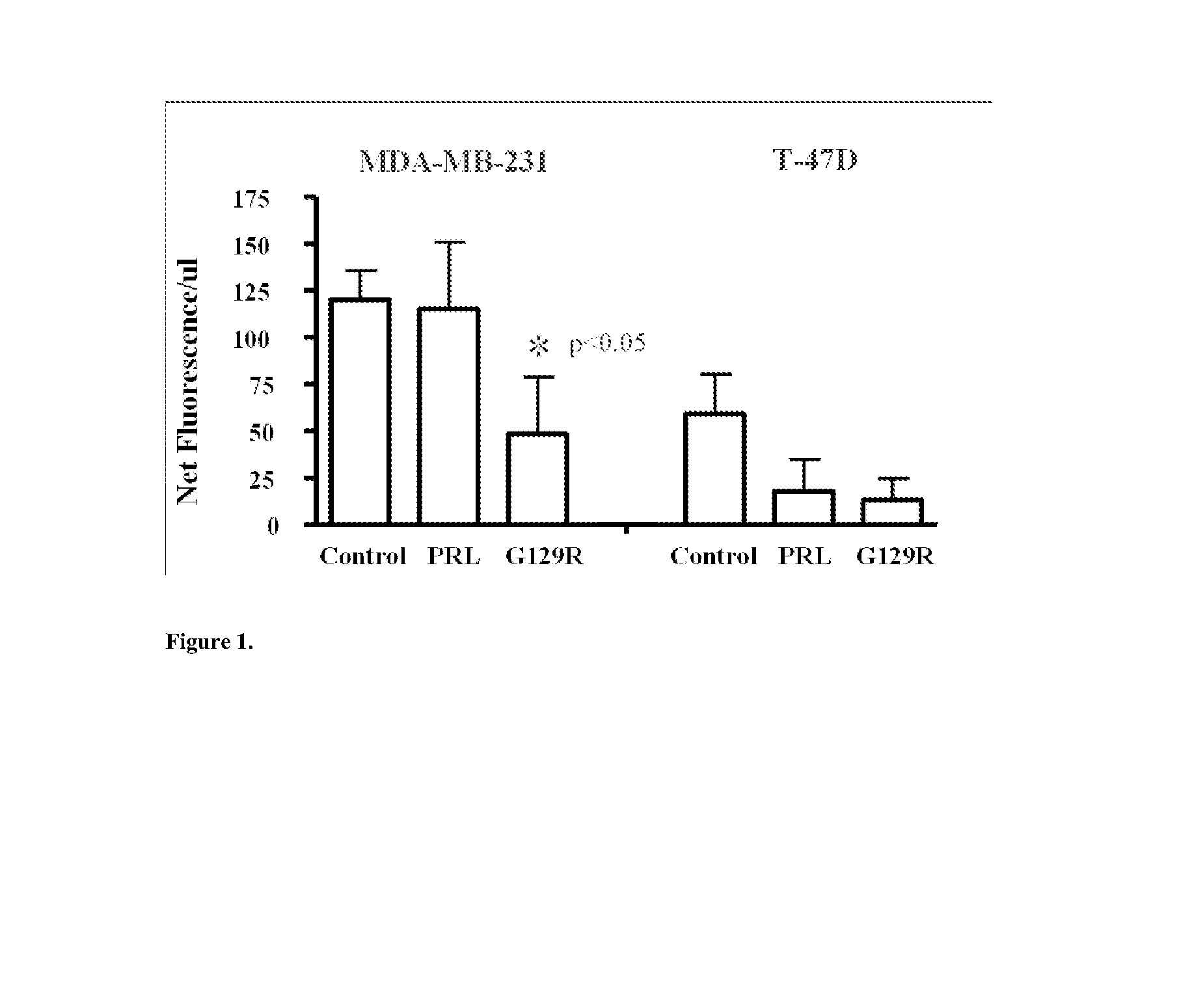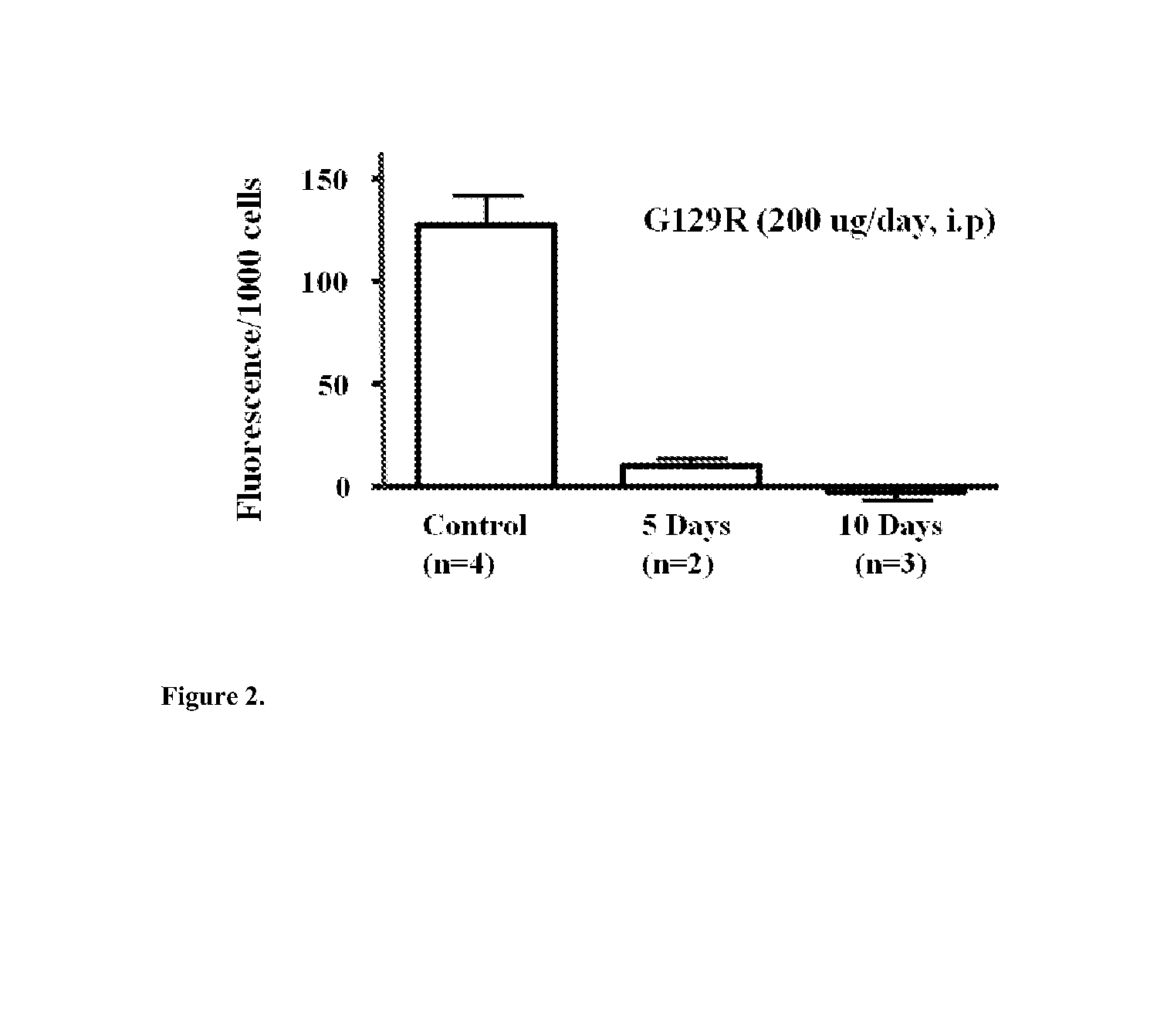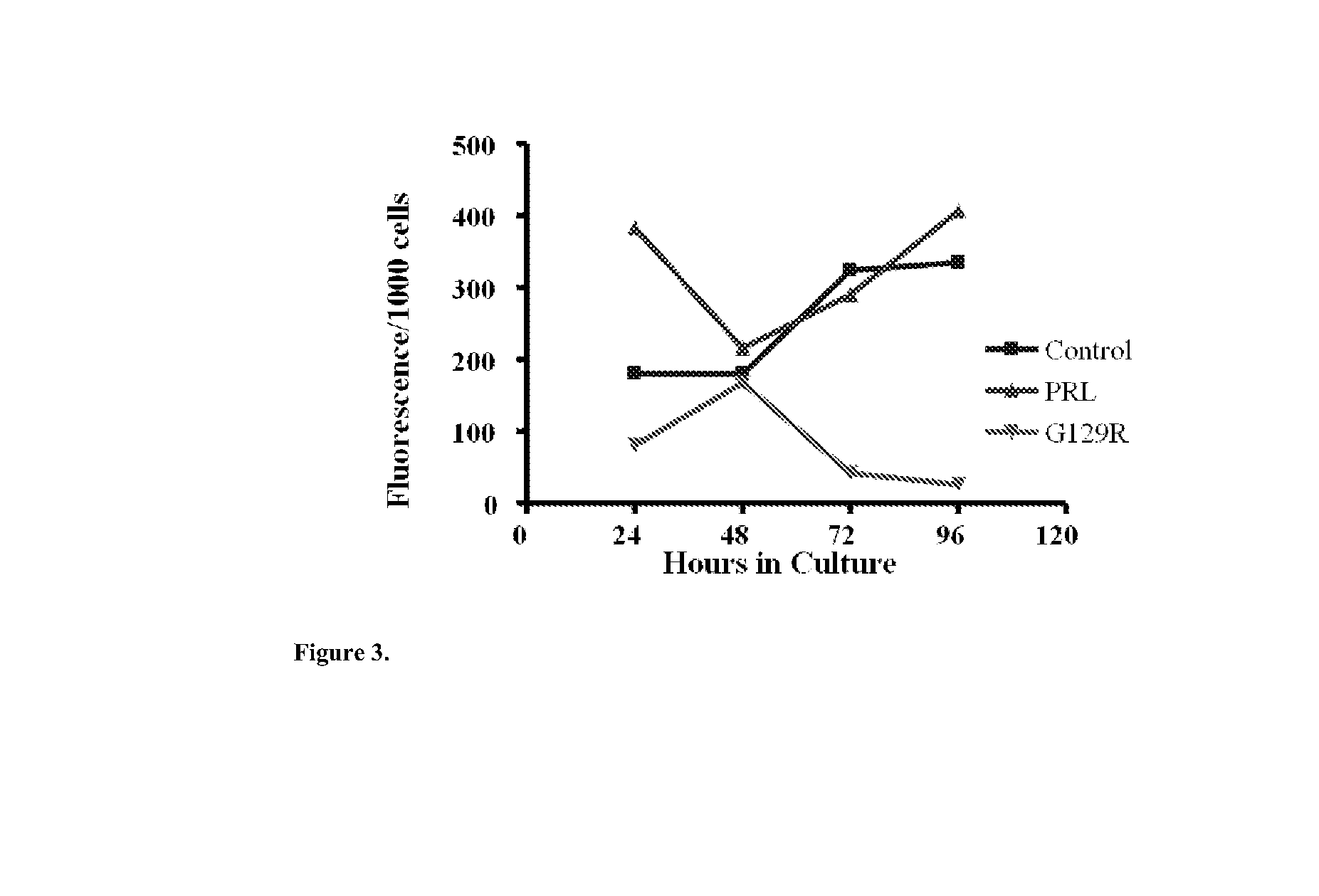Use of Prolactin Receptor Antagonist and Chemotherapeutic Drug for Treating Ovarian Cancer
a technology of prolactin receptor and chemotherapeutic drugs, which is applied in the direction of drug compositions, peptides/proteins, peptides, etc., can solve the problems of prolactin increasing the risk of systemic malignancies such as leukemia, poor overall patient prognosis, and poor prognosis of cancer types
- Summary
- Abstract
- Description
- Claims
- Application Information
AI Technical Summary
Benefits of technology
Problems solved by technology
Method used
Image
Examples
example 1
Preparation of Human Prolactin Antagonist G129R
[0065]Human PRL was successfully cloned using reverse transcription (RT) followed by polymerase chain reaction (PCR). Briefly, human pituitary polyA RNA (CloneTech, Inc. Palo Alto, Calif.) was used as template. A HPRL antisense primer was designed starting 2 bases from the stop codon (TAA) of hPRL cDNA (5′-GCTTAGCAGTTGTTGTTGTG-3′; SEQ ID NO: 1) and a sense primer was designed from ATG (5′-ATGAACATCAAAGGAT-3′; SEQ ID NO: 2). RT / PCR was carried out using a kit from Perkin-Elmer Cetus, Inc. (Norwalk, Conn.). The nucleotide sequence of the resulting hPRL was determined by the dideoxy chain-termination method using modified T7 DNA polymerase (Sequenase, United States Biochemical), and was found to be identical to that reported in GenBank except for a one base difference which results in a silent mutation at codon 21 (CTG→CTC). A schematic representation of the cloning process, including preparation of the pUCIG-Met expression vector, is summ...
example 2
Treatment of Triple-Negative Breast Cancer Cells with Prolactin Receptor Antagonist G129R Results in the Decreased ALDH1 Activity in the Cells
[0069]Human triple-negative breast cancer cells MDA-MB-231 and control breast cancer cells T-47D were plated in 6 well plates at 1×105 cells / ml, and allowed to adhere for 24 hours in growth media followed by 2 hours of serum free media depletion. The cells were then cultured either without (control) or with prolactin (100 ng / ml) or G129R (10 ug / ml) for three days. The cells were then collected and the ALDH-1 activity (this enzyme is a marker for cancer stem cells. See Ginestier et al., Cell Stem Cell 2007 1(5): 555-567) was measured by ALDEFLUORR fluorescent assay (StemCell Technologies). As shown in FIG. 1, treatment with prolactin antagonist G129R significantly reduced the ALDH1 activity in triple-negative breast cancer cells.
example 3
Treatment with Prolactin Receptor Antagonist Reduces the ALDH1 Activity in Tumor Cells
[0070]MMTV / neu transgenic mice carry an activated c-neu oncogene driven by a mouse mammary tumor virus (MMTV) promoter and develop mammary HER2+ adenocarcinomas (Muller et al. 1988. Cell. 54(1):105-15). MMTV / neu transgenic mice bearing mammary tumors were treated with PBS (n=4) or G129R for 5 (n=2) or 10 (n=3) days (10 mg / kg, i.p.). The tumors were isolated at the end of treatment, digested to a single cell suspension, and ALDH1 activity levels were compared. As can be seen from FIG. 2, the ALDH1 activity was significantly reduced in cancer cells isolated from animals treated with G129R. Practically no ALDH1 activity was detected in cancer cells that were treated with G129R for ten days.
PUM
| Property | Measurement | Unit |
|---|---|---|
| magnetic resonance imaging | aaaaa | aaaaa |
| nuclear magnetic resonance imaging | aaaaa | aaaaa |
| fluorescent | aaaaa | aaaaa |
Abstract
Description
Claims
Application Information
 Login to View More
Login to View More - R&D
- Intellectual Property
- Life Sciences
- Materials
- Tech Scout
- Unparalleled Data Quality
- Higher Quality Content
- 60% Fewer Hallucinations
Browse by: Latest US Patents, China's latest patents, Technical Efficacy Thesaurus, Application Domain, Technology Topic, Popular Technical Reports.
© 2025 PatSnap. All rights reserved.Legal|Privacy policy|Modern Slavery Act Transparency Statement|Sitemap|About US| Contact US: help@patsnap.com



